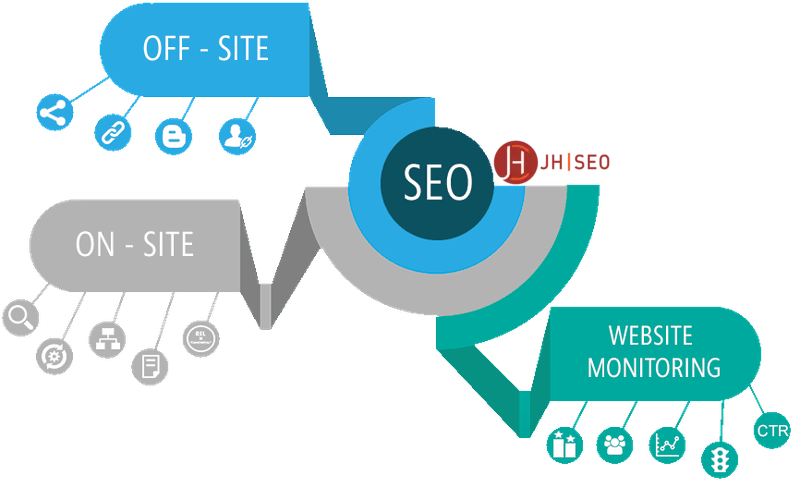SEO, or Search Engine Optimization, encompasses various methods aimed at improving a website’s visibility and position in search engine results. For small businesses, SEO is crucial as it enables them to compete effectively in the digital marketplace. By enhancing their digital footprint, small businesses can improve their likelihood of being found by prospective customers seeking products or services relevant to their offerings. This process not only enhances online visibility but also establishes credibility and trust among consumers, which are essential for driving growth and success in the current competitive digital environment.
Small businesses depend on SEO to drive search traffic, boost their online presence, and draw in customers. By employing effective SEO strategies, small businesses can boost their website’s ranking on search engine results pages (SERPs), ensuring their products or services are prominently displayed to potential customers searching for relevant keywords. This increased visibility not only drives organic traffic to their websites but also boosts brand awareness and customer engagement. Investing in SEO allows small businesses to attain sustainable growth and establish a robust online presence within their specific industries.
Local SEO
Local SEO refers to a specialized component of search engine optimization aimed at enhancing the online visibility of small businesses in location-specific searches. It is particularly crucial for businesses catering to local customers, such as restaurants, retail stores, and service providers. Local SEO ensures that these businesses appear prominently when potential customers in their geographical area search for relevant products or services. Strategies to improve local SEO involve targeting location-specific keywords in search queries, optimizing profiles on platforms like Google My Business, and maintaining consistent information across local directories where the business is listed. These strategies not only enhance visibility in local search results but also increase foot traffic and inquiries from nearby customers.
Google My Business (GMB) plays a crucial role in improving local SEO as it allows small businesses to control their online visibility across Google platforms such as Google Maps and local search results. Optimizing a GMB profile involves ensuring accurate and comprehensive business information, such as operating hours, contact details, and service offerings, and promptly addressing customer reviews. Local citations, which are references to a business’s name, address, and phone number on external websites, are essential for achieving success in local SEO. These citations establish trust and authority for a small business within its local community, increasing its visibility in local search results and attracting nearby customers seeking specific products or services. Moreover, positive customer feedback on platforms like Google My Business can significantly influence a small business’s reputation and visibility in local search rankings, underscoring the importance of proactive review management as part of effective local SEO strategies.
Search Engines
Search engines play a critical role in the realm of small business SEO by acting as the primary gateway for users seeking information, products, or services online. These platforms, including Google, Bing, and Yahoo, utilize sophisticated algorithms to index and prioritize web pages according to relevance, authority, and various other criteria. For small businesses looking to boost their online visibility, grasping the mechanics of search engines is crucial. This understanding enables businesses to optimize their websites effectively, thereby increasing their likelihood of appearing prominently in search results, attracting organic traffic, and ultimately promoting business growth.
Among search engines, Google maintains a dominant position, commanding the largest share of the market globally. Its sophisticated algorithms continuously evolve to prioritize user experience and relevance. Small businesses need to ensure their SEO strategies adhere to Google’s guidelines, given its dominant market share. Bing and Yahoo, although holding smaller portions of the market, remain influential, especially within niche markets or specific demographic segments. Therefore, businesses should consider these platforms in their overall SEO approach to maximize their online presence effectively. By grasping these platforms’ market shares and user behaviors, small businesses can tailor their SEO efforts to target keywords to their ideal audience effectively.
Successful SEO strategies for small businesses depend significantly on grasping the intricacies of search engine algorithms, which determine how websites are ranked in search results. These algorithms assess a range of elements including keyword appropriateness, the quality of content, backlink structures, and metrics related to user interaction. Understanding these algorithms is essential for tailoring SEO efforts effectively and improving visibility in search engine results pages (SERPs). By doing keyword research, adhering to best practices, and adapting to algorithm updates, small businesses can sustain or enhance their position in search results over the long term. Moreover, staying informed about algorithm changes through resources like Google Analytics allows businesses to adjust their SEO tactics promptly and optimize their online visibility.
Understanding search engine algorithms is crucial for small businesses aiming to achieve sustainable SEO success. These algorithms dictate how search engines rank websites, influencing factors such as keyword usage, content quality, backlink profiles, and user experience in other search engines. By keeping up with algorithm changes and adjusting their SEO strategies accordingly, small businesses can enhance their visibility in search results, attract more organic traffic, and effectively meet their online marketing goals.
Small Business SEO
Small business SEO requires tailored strategies that accommodate the unique challenges and resources of smaller enterprises. Unlike larger corporations with extensive marketing budgets, small businesses often operate with limited resources, necessitating a focused approach to SEO. This involves prioritizing efforts that yield the highest return on investment (ROI), such as optimizing for local SEO to capture nearby customers searching for products or services from small business owners in their vicinity. By focusing on cost-effective tactics like improving website content, optimizing meta tags, and enhancing site speed, small businesses can enhance their online visibility without stretching their budgets.
Setting realistic SEO goals is crucial for small businesses to gauge their progress and ensure their efforts align with achievable outcomes. Objectives could involve boosting organic traffic, elevating keyword rankings, or enhancing conversion rates. By setting precise goals and monitoring performance indicators via tools such as Google Analytics, small businesses can evaluate the efficacy of their SEO initiatives and implement informed refinements as necessary. This continuous cycle empowers them to fine-tune strategies and optimize their online expansion opportunities progressively.
Essential components of small business SEO include on-page SEO, off-page SEO, and technical SEO. On-page SEO focuses on optimizing individual web pages with relevant keywords, compelling meta descriptions, and user-focused content that addresses customer needs. Off-page SEO involves acquiring high-quality backlinks from external sites and engaging in social media activities to enhance the website’s authority and trustworthiness. Technical SEO ensures that the small business website is technically sound, with elements like fast loading times, mobile responsiveness, secure HTTPS protocols, and optimized site architecture. Together, these principles form a comprehensive approach to small businesses, enhancing visibility, attracting organic traffic, and driving business growth.
Google Search Console
Google Search Console (GSC) is an influential tool designed to assist website owners in monitoring and optimizing their website traffic presence in Google search results. For small businesses, GSC serves as a critical resource for understanding how their websites perform in Google’s search engine. It offers valuable insights into different aspects of SEO, including keyword performance, click-through rates, and indexing status. Analyzing these metrics enables small businesses to pinpoint opportunities for improving their visibility and increasing organic traffic.
Google Search Console offers detailed reports that illustrate how a small or local business’s website appears in Google’s search results. It provides information or analytics on the number of impressions, clicks, and average position for specific search queries, allowing businesses to evaluate their SEO efforts effectively. Moreover, GSC alerts small businesses to potential issues such as indexing errors, mobile usability problems, or security issues that may impact their search engine rankings. Addressing these issues promptly can help businesses maintain optimal performance and visibility in search results, potentially impacting their search engine rankings.
Google Search Console also enables small businesses to submit sitemaps, which helps Google crawl and index their website’s content more efficiently. This feature is particularly beneficial for ensuring that all pages and updates on the website are accurately reflected in search results. Additionally, GSC provides insights into how users interact with the website through Google Analytics integration, offering a comprehensive view of visitor behavior, conversion rates, and other critical metrics. By leveraging these insights, small businesses can refine their SEO strategies, improve user experience, and ultimately get more traffic and achieve better results in Google search rankings.
Small businesses can enhance their presence by concentrating on local SEO strategies for location-based searches, effectively reaching their target audience of nearby customers seeking their products or services. Small businesses need to set realistic SEO goals and implement comprehensive strategies that encompass on-page, off-page, and technical SEO aspects. Tools like Google Analytics and business profiles play a crucial role in monitoring performance and refining strategies tailored to reflect user behavior and current search engine trends. By consistently adapting to algorithm updates and user preferences, small businesses can maintain and improve their search rankings, driving organic traffic and fostering sustainable growth in their market segments.



































































































































































































































